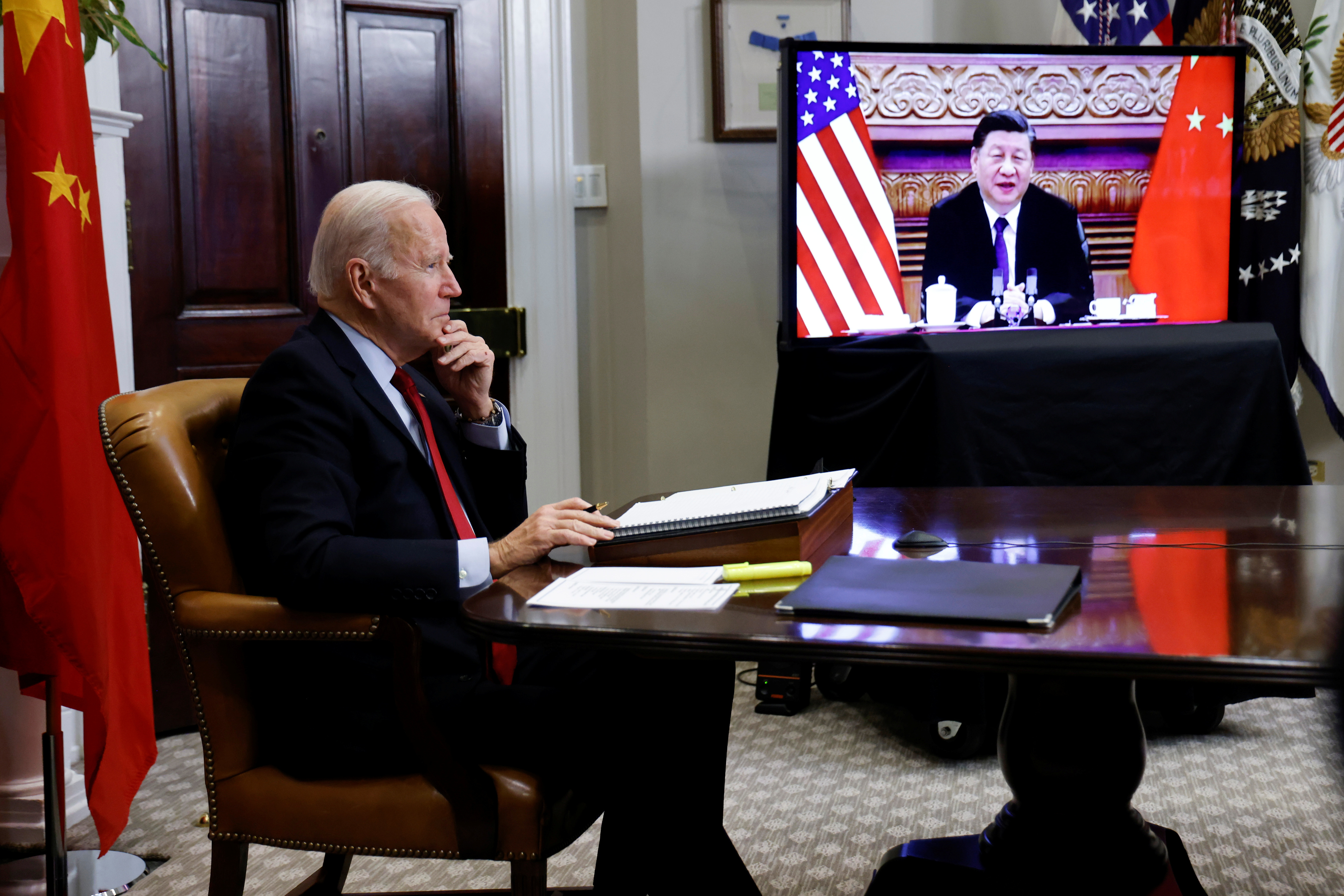From the WHO’s monkeypox recommendations to aggressive Japanese dolphins – Here’s your July 29 news briefing

A few minutes every morning is all you need.
Stay up to date on the world's Headlines and Human Stories. It's fun, it's factual, it's fluff-free.
To start off, we’re looking into:
The WHO’s monkeypox recommendations
Over the weekend, the WHO declared monkeypox a health emergency of international concern. The disease has been circulating in remote parts of Africa (where animals and rodents carry the virus) for quite some time but has now made its way to the other side of the world. Now, Europe is the epicenter of the monkeypox outbreak, recording over 70% of cases, followed by the Americas at 25%. According to the WHO, over 18,000 cases have been reported across nearly 80 countries. Five deaths in Africa have also been reported.
So far, it’s mainly spreading through prolonged skin-to-skin contact during sex, but it’s unclear whether it’s a new sort of STI. To elaborate, it’s not an STI in the typical sense of spreading through semen or vaginal fluids. But, the virus does seem to behave similarly in that it’s being spread through close physical contact, which includes sexual contact. While most people catching it in this ongoing outbreak are men between the ages of 30 and 40, anyone can catch it through physical contact like hugging and kissing. So, although it doesn’t seem to be spreading in the broader community so far, that could change if the outbreak isn’t contained.
With that, on Wednesday, the WHO recommended that gay and bisexual men limit their number of sexual partners, as 99% of cases so far are among men, and at least 95% of those are men who have sex with men. This comes as both Australia and the US make monkeypox a disease of national significance within their borders, and monkeypox vaccination clinics pop up around Europe.
Biden and Xi have a chat

Tensions between the US and China have been higher than average in the past few months. The big thing going on is that China refuses to join the American-led attack on the Russian economy over the war in Ukraine. But more recently, China has been up in arms over a trip to Taiwan that US House Speaker Nancy Pelosi has been considering. There are rumors that the trip is in her private schedule and that she’s also invited fellow lawmakers on the trip.
So on Thursday, Joe Biden and Xi Jinping had a marathon call where they talked things out a bit. The call was more than two hours long, and according to the American readout, it focused on strengthening the relationship between the US and China, and both leaders are directing their staff to work on issues of healthcare and climate change. But the Chinese readout also included a warning against the US provoking China, referring to that trip Pelosi wants to make.
Publicly, everyone acknowledges that the trip to Taiwan is ultimately the Speaker’s choice, but there are rumors that pressure is being put on her and her office to either postpone or cancel the trip to avoid retaliation from China.
Protestors storm Iraq’s Parliament amid political unrest

Last October, Iraq held its parliamentary elections, leading to the country’s current political confusion. It has been unable to form a viable government since the election. In June, Shia leader and former militia leader Muqtada al-Sadr directed his parliamentary bloc to resign to protest Parliament’s failure to form a government. Sadr and his supporters have rejected the prime minister nomination of Mohammed Shia al-Sudani, a former minister and ex-provincial governor who is pro-Iran and the Coordination Framework’s pick for the position.
Al-Sadr supports forming a new government in Iraq entirely and is opposed to Iranian and American influence in the country. His idea of a national majority government is representative of different ethnicities and sects, rejecting the pro-Iran framework. And, with 74 seats, al-Sadr’s bloc is the largest in Parliament. But, not everyone believes he is a nationalist as he claims to be. “The truth is in Iraq, there is not a single political party, whether Shia, Sunni or Kurd, that does not have some kind of tie with Iran,” said Marsin Alshamary, a research fellow at the Harvard Kennedy School, to Al Jazeera.
On Wednesday, hundreds of protesters in support of al-Sadr stormed the Parliament building, even as police fired tear gas at them. They sang and danced in Parliament, leaving after about two hours once al-Sadr tweeted that they should return home, saying, “Your message has been heard …”
To end, we’ll look into:
Got an important message to send at work? It might be best to skip the emoji
Imagine this scenario – you just signed a big client at work, and though you can’t be in the same room to celebrate it, a text thread or a Slack channel gets filled with celebratory messages. So, of course, you send a fist bump emoji. But then, Bryan from HR sends you a private message wondering why you want to punch someone. So now you have to explain that no one was getting punched, and you just wanted to celebrate without wasting any time – which you ended up doing anyway by having to explain.
This kind of confusion isn’t unheard of, especially in workplaces that are increasingly moving online but also as teams become more diverse regarding ethnicity and age. There’s often a gap between what people mean by certain emoji and how they are received.
A survey conducted by Slack and Duolingo of 9,400 hybrid workers across North America, Asia and Europe found that most workers feel like their language through text is incomplete on its own because it’s hard to get the entire sentiment across without slipping in a few emoji. But 58% of respondents also said they didn’t realize that certain emoji have different meanings than what they thought.

It doesn’t stop there, though. Some are subtle, such as the slightly smiling face emoji, which can signal either happiness or sarcastic exasperation. The survey showed that these have cultural cues – just one in 20 people in Japan would interpret the emoji as exasperation, while that number is one in five in the US and Singapore. And when it comes to the peach or the eggplant emoji, let’s just say avoiding those entirely is probably the best practice.
In other news …
📈Stocks: MSCI’s gauge of stocks across the globe gained 1.24%.
📄Some specifics:
- The Dow Jones Industrial Average jumped 1.03% to 32,529.63.
- The S&P 500 increased 1.2% to 4,072.43.
- Nasdaq Composite rose 1.08% to 12,162.59.
- Hang Seng index slipped 0.23% to 20,622.68.
🧠Quick factors to bear in mind:
- GDP fell 0.9%, declining for the second straight quarter, which is a broad and simple measure that we’re in a recession.
- Another report released on Thursday showed that jobless claims increased to 256,000 for the week ending July 23, which is higher than the 249,000 estimates.
- Apple beat Wall Street estimates in terms of both revenue and profit, reporting that its fiscal 2022 third quarter’s revenue, ending June 25, was US$83 billion.
- Amazon also beat Wall Street estimates, with revenue climbing 7% in the second quarter to US$121.23 billion.
- Hong Kong monetary agency lifted its based rate 75 basis points to 2.75%, following the US’ hike.
👄Some comments and chatter:
“We’re not in recession, but it’s clear the economy’s growth is slowing. The economy is close to stall speed, moving forward but barely," said Mark Zandi, chief economist at Moody’s Analytics.
“It’s certainly going to be an interesting balance between hopefully inflation moderating but then consumers having to face a more challenging economic backdrop. We don’t see the scope for a deep and prolonged recession but the slowdown the market is pricing in is likely to come to fruition in the next couple of quarters maybe even into the first quarter of 2023," said Mona Mahajan, senior investment strategist at Edward Jones.
🛢Oil: Oil prices were mixed over recession worries. US crude slipped 0.86% to US$96.42 per barrel. Brent settled up 0.49% at US$107.14.
👛Bitcoin: Bitcoin is up 4.39% at 23,969.
💹Rising debt in Asia: According to the IMF, debt in Asia has risen sharply from 25% pre-COVID to 38%, which is causing worry. Countries at risk include Maldives, Mongolia, Laos and Papua New Guinea. This comes after Sri Lanka has already defaulted on some of its loan repayments.
🤵Ma cedes control: According to Dow Jones, which spoke to people familiar with the situation, Jack Ma will relinquish control of Ant in order to make regulators happy and push ahead with its IPO. He currently holds 50.52%.
👑Saudi crown prince in Paris: Saudi Crown Prince Mohammed bin Salman met with France’s Macron in Paris, which caused outrage among some after the murder of journalist Jamal Khashoggi. Salman has denied ordering the killing. This meeting comes amid worry about Iran’s nuclear program and surging energy prices.
😲Screen topples on band Mirror: A giant screen fell on the insanely popular Hong Kong boy band, Mirror, crushing one performer and turning to topple onto the others on stage. Two were hospitalized, with one in serious condition. Some female fans were also treated for shock.
📱Instagram is rolling it back: After intense scrutiny and criticism, including a petition, Instagram will roll its design back to its previous version over the next two weeks.
🐬Aggressive Japanese dolphins: Japanese people, to foreigners, are stereotypically very polite. But the same can’t be said for the country’s dolphins. Dolphins aren’t known to be aggressive animals, but there are reports of a wild one going around and biting Japanese beachgoers. According to an expert, though, it may have just been a case of them playing too rough because dolphins interact with their mouth. If they really wanted to hurt you, they’d swim full force at you or smack you with their tail …
Written and put together by Jake Shropshire, Vanessa Wolosz, Christine Dulion and Krystal Lai




Comments ()